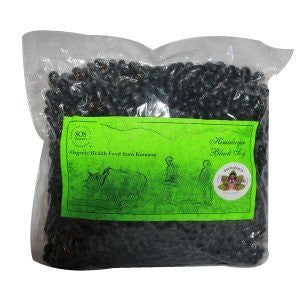
People are becoming more and more conscious of what they eat, more so now than ever in the past. As a result, more people are shifting towards a vegetarian diet. Whether it is because of ethical reasons or dietary ones, the fact is that people are realizing that non-vegetarian food, especially red meat is not good for their bodies. They might be right on that account, but not completely.
Becoming a vegetarian is a personal choice, and shouldn't be controlled by anybody else. But we can’t ignore the nutritional needs of the body. And non-vegetarian food, no matter how it is produced and consumed, does fulfill a major chunk of nutritional requirement of the body. Non-vegetarian foods like chicken, fish and meat are among the richest sources of protein, and when we forgo these foods, we are also shutting down our protein intake. Please note that it is merely pointing out that the vegetarian people need some other source of protein that will fill the void left by chicken and meat.
The obvious answer to this problem is Organic Soy Products. It is obvious because it is the richest source of proteins in the plant kingdom. Typical legumes – which soy is a part of – contain 20-25% protein. On the other hand, Soy contains an astounding 43% protein. Not only is there a healthy dose of protein in soy, even the quality of the protein is exceptional. According to the World Health Organization, the protein in soy is equivalent in quality to the protein found in meat and milk products.
To further convince you of the goodness of soy, here are a bunch of health and nutritional benefits you can experience if you include it in your diet.
1. Fights Obesity
If you’re trying to fight obesity, decrease your weight, or simply stay toned, it is a great idea to add soy to your diet. Soy’s effect on obesity is two-fold. Firstly, because of its high protein content, it helps to suppress your appetite and ensures you don’t overeat on a regular basis. Secondly, certain peptides in soy have the ability to lower the synthesis of fatty acids in the body and prevent the deposition of fatty acids in the fat cells of the body.
So, if you’re looking for a little helping hand in order to lose some weight, soy might be a good bet.
2. Prevents Type-2 Diabetes
Soy even has a preventative action against type 2 diabetes, as research has shown. Soy has been shown to lower the risk of type 2 diabetes as it lessens the insulin resistance in the body, mainly due to its property of boosting the synthesis of insulin receptors.
However, these favourable effects of soy on type-2 diabetes only appear to work in conjunction with the presence of polyunsaturated fats.
3. Improves Cardiovascular Health
Among its other constituents – apart from proteins – soy is also a good source of unsaturated fats. Unsaturated fats are always recommended ahead of saturated fats as they help to keep the cholesterol low and prevent the blocking of arteries which is the cause of severe cardiovascular problems.
Besides being rich in unsaturated fats, soy also contains polyunsaturated fatty acids. Two of these – linoleic and linolenic acids – are extremely helpful in regulating the smooth contraction and expansion of the heart muscles and thus keep the blood pressure in check.
4. Supports Bone Health
Soy is also rich in calcium and vitamin K – both nutrients necessary to support healthy bones. It is especially helpful for the patients of osteoporosis.
5. Promotes Digestive Health
Soy is a source of insoluble fiber, something that is essential in maintaining and promoting a good digestive health. The fiber in soy can help to keep the bowels clean, fight off constipation, and even keep colon cancer at bay.
Soy is an extremely nutritious and useful food that can be consumed in numerous forms – as soy flour, soy milk, tofu, soy yogurt, or simply soy beans. But no matter which form you consume it in, it will provide you with an array of health benefits!
For more information about organic soy products, click here.


